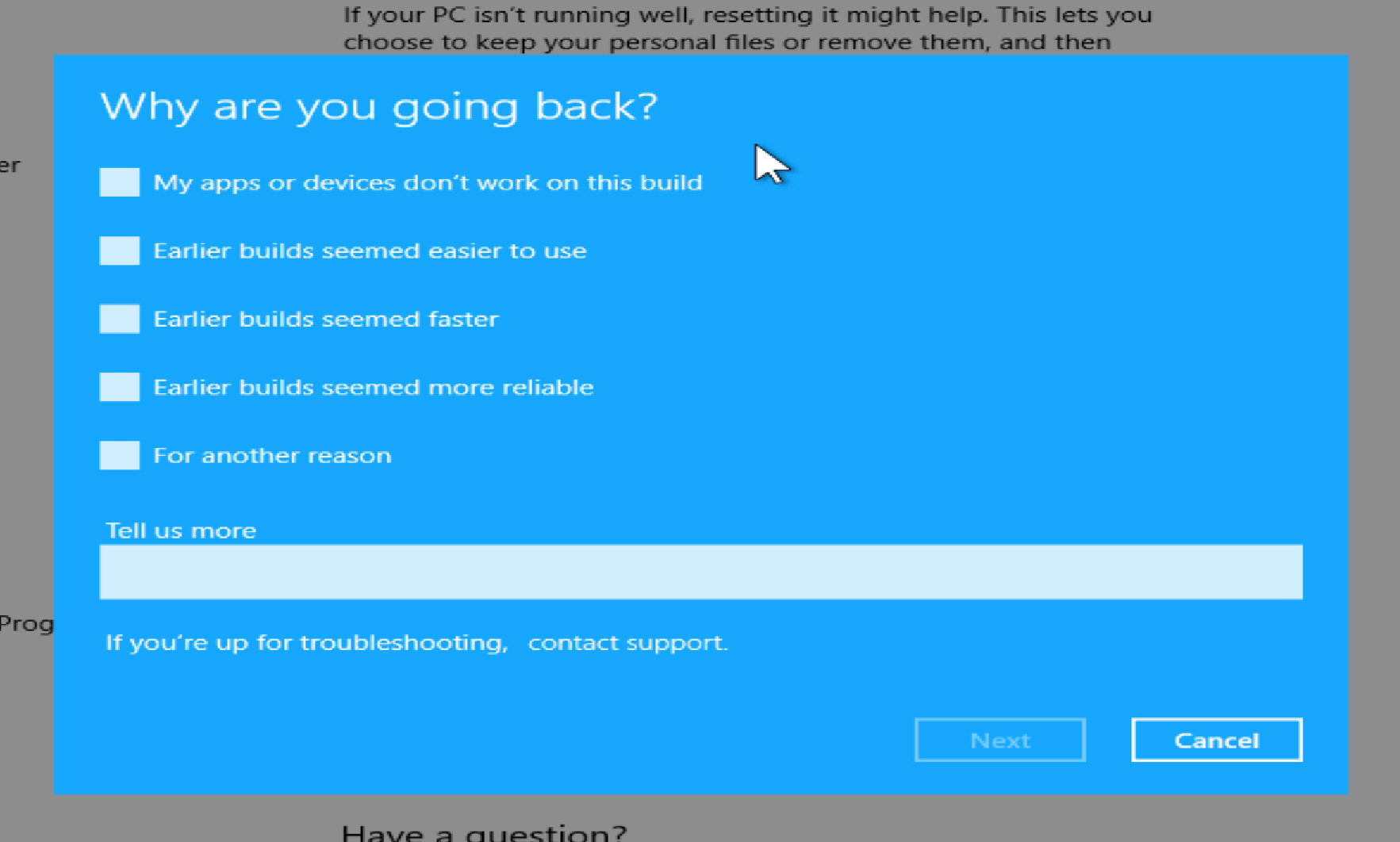How to rollback and uninstall Windows 10 Creators Update

The Windows 10 Creators Update is rolling out to users from today. If you install it and encounter major problems, as some users have, you might want to go back to your previous version, and wait until the update is a bit less buggy.
If you been using Windows 10 for a while, you’ll probably know how to do this, although the process has changed slightly this time around.
SEE ALSO: Why you shouldn't rush to install the Windows 10 Creators Update
To uninstall the Creators Update, go to Start > Settings and click on 'Update & security'.
Click the Recovery link and then click on 'Get started' under 'Go back to the previous version of Windows 10.'
Provided you haven’t yet cleared up all the space used by the update, the rollback process will start.
You’ll now be asked why you are going back to the previous build. You can select from:
- My apps or devices don’t work on this build
- Earlier builds seemed easier to use
- Earlier builds seemed faster
- Earlier builds seemed more reliable
- For another reason

You need to select a reason for the Next button to appear, and can also opt to tell Microsoft more about your reasons if you wish.
Bear in mind, if you do revert to a previous build you may need to reinstall some apps and programs, and you will lose any changes you made to Settings after installing the Creators Update. You’ll also be advised to backup your files as a precaution.
SEE ALSO: How to use Windows 10 Creators Update's new Fresh Start feature to fix all your Windows problems
Before you do go back to the previous version you’ll have the option to check for updates, just in case the problem(s) you’re encountering have since been fixed.
If you’re sure you want to remove the Creators Update, click on the 'Go back to earlier build' button and the rollback will begin. Just sit back and wait.
Image Credit: Agenturfotografin / Shutterstock
